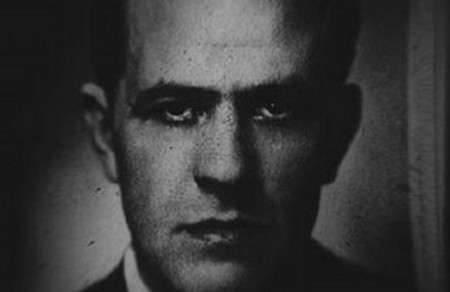Individuals with high status, who are charming figures, and who exhibit polite manners can fool anyone into thinking they are nice, educated, and innocent beings. One man used exactly those characteristics to hide his true self and avoid being suspected of being a serial killer. Władysław Mazurkiewicz, unknown perhaps outside Poland, was one such killer.
Mazurkiewicz was born on January 31, 1911 in Krakow, Poland. As a young child up to his adulthood he always gave off the impression of having style and brains. As a young man, he dined at the classiest restaurants, dressed in the finest attire, and stayed at the top star hotels. How did he afford such a lifestyle? Actually, his murders funded his tasteful lifestyle. At a young age his mother had succumbed to a disease. In his young adult years, he loved to study law and politics, but soon dropped out of school, claiming that higher education took too much time away from his social life. Gaining a spot in the elite social class of Poland was very important to Władysław. He was so influenced by the kind of lives they lived that he began to take larger and larger risks to join their ranks. He gamble money, and lost; desperate to get money, he turned to the higher risks of robbery, and in order to cover up his crimes, he resorted to murdering his robbery victims. That’s how it all started.1

In 1940, Mazurkiewicz said that he robbed and killed his first victim, a Jew. He was never caught for the crime. He traded the belongings of the Jew for money, as he would thereafter often trade stolen gold and leather for money. Following that year, he traveled throughout Europe and made dirty deals with members of the communist authorities in Poland. People said that Mazurkiewicz was rich after 1941, when the Jewish ghetto was founded in Warsaw. As a result, by 1943 the status of Mazurkiewicz’s possessions had increased. It is well known that during the deportation of Krakow’s Jews to Auschwitz, a group of Cracovians made a fortune. Cracovians, seeing Mazurkiewicz bet at the tables and the way he got away with robberies, had no illusions that he was just a rookie in these crimes. Interestingly, the label of “collaborator” did not cling to Mazurkiewicz. At the end of the 1940s, Mazurkiewicz changed into a Polish Red Cross employee for several years, while he spent time in Europe. There he searched for Polish citizens who wanted to return to the country, helped them to complete the necessary formalities, and then organized the trip back to their homeland. And Mazurkiewicz, as people who knew him, had a sensitive soul, loved nature, beautiful objects, and knew how to appreciate the beauty of architecture.2

Against this background of Mazurkiewicz’s biography, his family life is likewise puzzling. Mazurkiewicz had a wife—beautiful Helena—with whom he had lived at Biskupi Square since 1945. Mazurkiewicz met a man named Jerzy de Laveaux, known as the King of the Black Market, on May 29, 1946, when he was moving to the monastery in Cracow Bielany, and they ended up being neighbors. They later had a business there in the city involving the black market. In the spring of 1946, a Soviet officer visited him and offered to buy postage stamps. In the autumn of 1955, an indispensable garage failed to hide the bodies of two wealthy sisters. Before it happened, at the turn of August and September, the elegant murderer had a meeting in Warsaw with Stanisław Łopuszynski, who in those days had turned up his murky business in betting crimes and murders.3
In his murders, he would only use cyanide or a pistol, and he had gotten away with every single one of them, until a strange incident in 1955 when he made his first mistake. While driving from Zapokane to Warsaw in September with his friend Stanisław Łopuszyński, Stan had his attention distracted for a minute, and Mazurkiewicz seized the opportunity and shot him in the head. Shockingly, the bullet had missed his brain and he was only knocked unconscious. Stan woke up with a sharp pain in his head, and Mazurkiewicz apologized to him saying that he had played only a joke on him by throwing a fire cracker at him. Later, Stan attended a hospital, complaining of very harsh pains in his head. The doctors couldn’t find an explanation until they conducted an x-ray and found a foreign object lodged in his skull. When they pulled out the small object, they discovered it was a bullet. Stan put the clues together and figured out that his friend had tried to kill him. He reported it and the the police issued a warrant for Mazurkiewicz’s arrest.4

A month later, police caught up with Mazurkiewicz in a hotel near Zapokane, Poland. When they searched his home, they found that the concrete floor in his garage was uneven and looked disturbed. Once they broke open the concrete floor, they discovered the bodies of the Laveaux sisters, two daughters of a wealthy Polish family. He had stated that they both had asked him to watch over their jewels and currency while they went out of town. When they returned and asked for their jewels and currency, he had already spent it all on luxury items and gambling. So he invited them to his house for tea, and shot them both in the back of the head, and then opened a hole in his garage to bury them and fill the graves with concrete. 5

Police took Mazurkiewicz in for questioning and were baffled by his confession. In his many killings, he explained how he murdered some, starting with Tadeusz B, a polish army soldier, who had traded illegal currency with Mazurkiewicz, had lunch with him one day, and fed him a sandwich laced with cyanide. But luckily for the officer the small amount only knocked him unconscious for a few hours, and then he got medical attention, although they couldn’t trace any evidence of the sandwich to Władysław. Another victim, Wiktor Z, was poisoned with cyanide, shot, and then dumped into the Wisła river, Poland’s largest and main river. Władysław B, Jerzy de Laveaux, and Józef T all met the same fate. When the time for trial came, Mazurkiewicz was only charged for six murders and two attempted murders, even though he had told police he committed thirty.6 His lawyer at the time, Zygmunt Hofmokl-Ostrowski, argued that his client was a “natural” killer. He used the defense of mental illness, and that he had these instincts in his genes and couldn’t be a normal being even if he tried. The defense attorney also said that the people who he executed were “dysfunctional” in society so it was as if Mazurkiewicz was doing society a favor, and therefore shouldn’t be prosecuted. But the court thought otherwise and Władysław was sentenced to death. On January 31, 1957, his 46th birthday, Mazurkiewicz was hanged at Kraków’s Montelupich prison.
- “The Joys of Private Enterprise,” TIME vol. 68 no. 9 (1956): 34. ↵
- Cezarego Łazarewicza, Elegant Murderer (Poland: W.A.B., 18 November), 224. ↵
- Cezarego Łazarewicza, Elegant Murderer (Poland: W.A.B., 18 Novemeber), 224. ↵
- Artur Drożdżak, “Władysław Mazurkiewicz,” Serial Killer, (November 2013). ↵
- Inside Poland, “Władysław Mazurkiewicz,” Poland’s Gentleman Killer, (July 2014). ↵
- Mazurkiewicz Władysław – Elegancki morderca [feat. Straszne historie na faktach | NIEDIEGETYCZNE. YouTube. April 14, 2016. Accessed August 29, 2017. https://youtu.be/E4CgevTIspQ. ↵



62 comments
Jasmine Jaramillo
This article was intriguing to read because it talked about Władysław Mazurkiewicz being a natural killer. Most psychopathic killers are very intelligent and can deceive people very well. Mazurkiewicz was able to commit 30 murders without being a suspect for any of them just because of the way he handled himself and was able to deceive others. I find that interesting, the fact that people know how to influence others thoughts and perceptions about them just by the way the act and dress.
Miranda Alamilla
it’s scary to think about, really – you can look to your left and you can look to your right and you’ll probably unknowingly spot a killer, an ex-killer, or a soon-to-be killer. People like Mazurkiewicsz seem to lead a normal life and have it all, being that he was from a high-status family and was well-educated. From trying to kill his best friend to killing two sisters in his garage and then using his wealth to hire a defense attorney to prove him as not guilty… this story sends chills down your spine and makes you think about how anybody can become a serial killer. Looks can always deceive.
Hannah Wilson
He was a disturbed man who knew how to manipulate people. It’s astonishing that he had a family that he never killed, but sat there and shot his closest friend in the head and buried two girls in his garage. It s obvious that he had lost any humanity he might have had. It is scary that he seemed so normal to everyone but turned out to be a cold blooded killer because he was so skilled at being deceitful.
Cheyanne Redman
This killer is one of the most interesting killers given that he showed no signs of killing, he came from a high class society, and more a successful lifestyle. His killings were so chilling, and scary, they really sent a chill down my spine, especially the killing of the two sisters. it’s twisted to know tat the only way he felt he could get what he wanted was to kill, and that is truly the mind of a serial killer. Its scary to think how many “serial killers” wonder through our streets today who seem normal.
Johnanthony Hernandez
I find it both interesting and disturbing to think that sometimes the people we would least expect to become a serial killer are sometimes the ones that will do it. But to think that someone like Mazurkiewicz would fuel his refined tastes of clothing, dining and life from those he had murdered is beyond comprehension. I have refined tastes in clothing and dining but would never think of funding it in the way he did, overall a very informative article that brings to light a disturbing case of a man who could have contributed a lot more to a generation already in turmoil.
Monica Avila
The intro alone peaked my interest in this article. It is disturbing to know how easily a murderer can mask their true character. The fact that it took thirty murders later and attempted shooting of his own friend to take down Mazurkiewicsz is unsettling. Although he came to his demise eventually, it is tragic to know now all of his victims received justice.
Belia Camarena
Before reading this article, I had never heard about Wladyslaw Mazurkiewicz or his crimes. Nonetheless, I found this article and Mazurkiewicz fascinating. He almost seems to have had two completely different personalities. At times he seemed sensitive and caring, yet he ruthlessly murdered many, even some close friends. It is amazing that he was able to use his gentleman’s appearance to mask his crimes.
Saira Castellanos
I think we usually think of killers as being creepy or almost demonic looking. I feel like we judge books by their covers way to much. Just because someone is attractive does not mean anyone should let their guard down. Today we see a man in a nice suit and well groomed, we automatically assume that he is a good person, but this article proves that that is not always the case. I thought it was funny that he told his friend that he threw a fire cracker at him a joke. I really enjoyed this article, i had never heard of a handsome serial killer.
Natalia Flores
This is an amazing article dedicated to a perturbed mind. It boggles me as to how Wladyslaw was able to get away with so many murders and even attempted murders. The man must have been pretty charming if he was able to convince his friend, Stanislaw, that he only threw a firecracker at him. It’s very frightening that he was able to convince and deceive people so openly and with an undiscriminating manner. He killed for greed and that was it.
Alexandra Cantu
I have read many articles and books about serial killers. And it is known that most men use their charisma and charming looks to gain people trust and attack. I am baffled that Mazurkiewicz was able to get away with twenty-four murders be cause his defense attorney said they were “natural” killings. In my opinion how did the jury buy this excuse? It is completely insane. The things people do for money is crazy I mean he tried to kill his closest friend like that is beyond crazy to me.